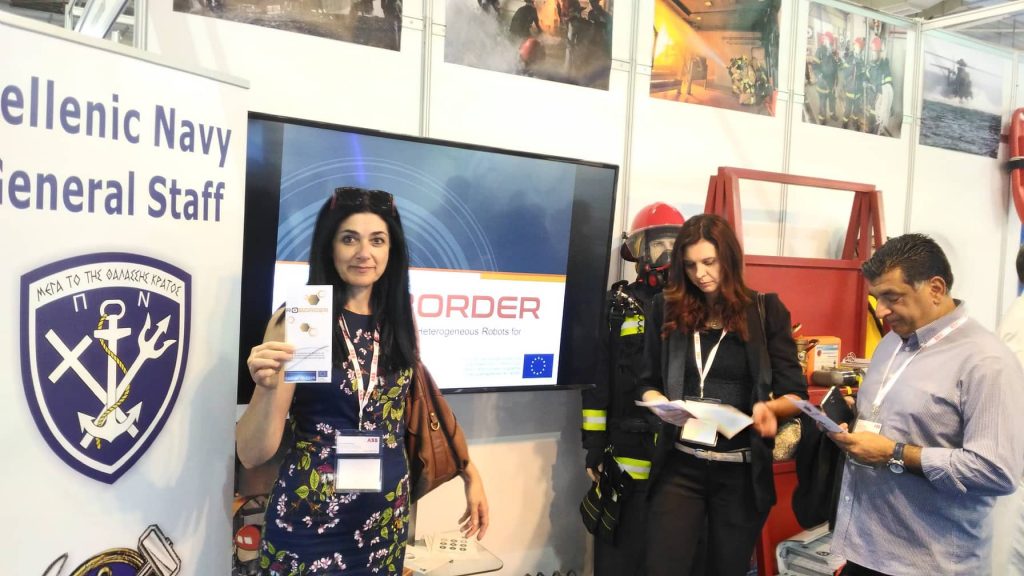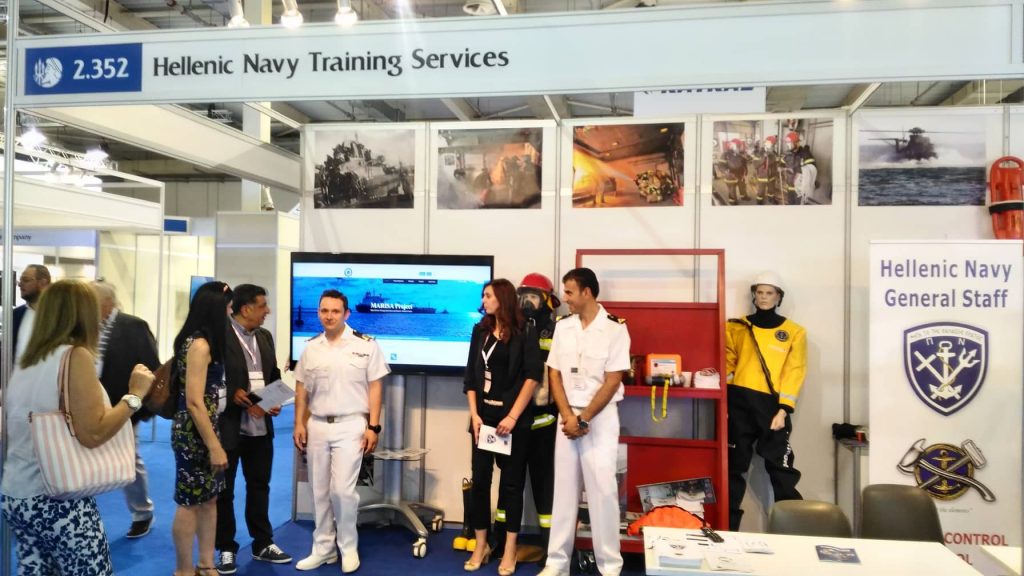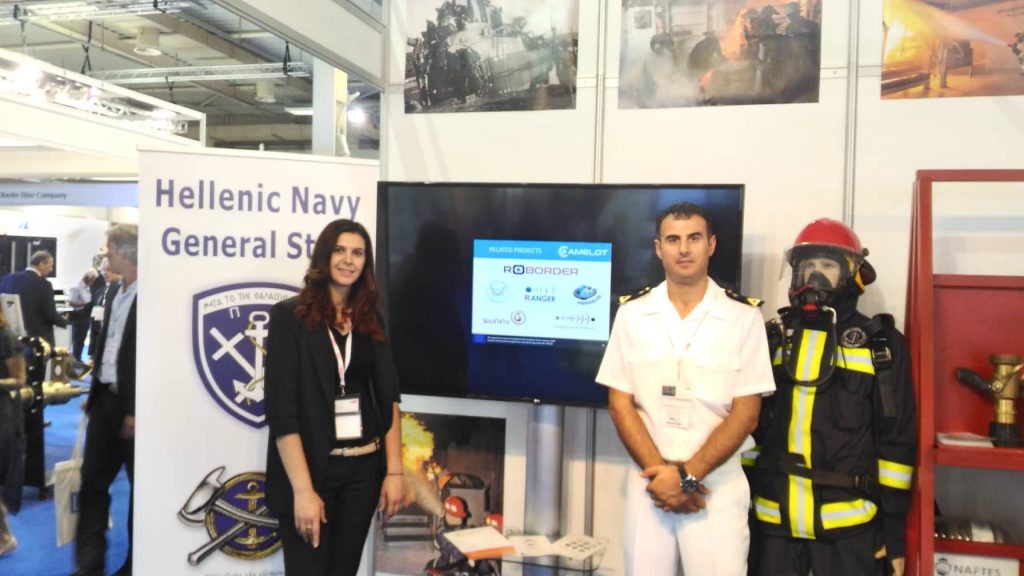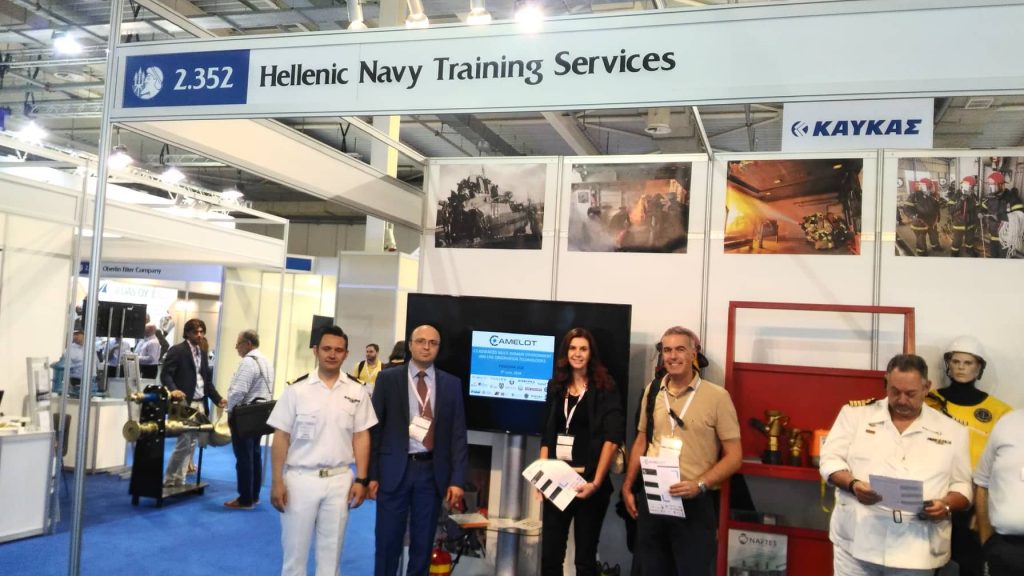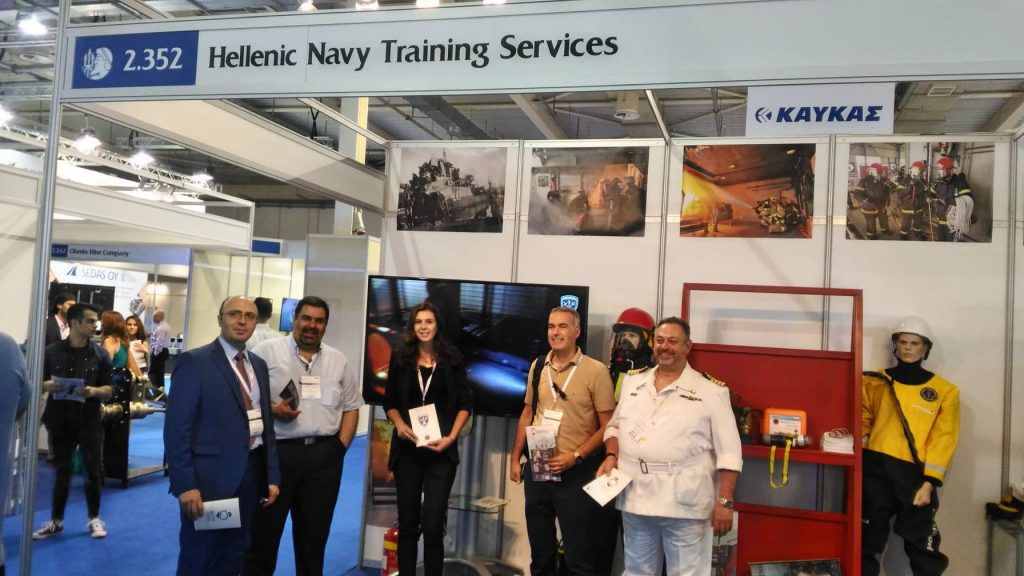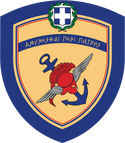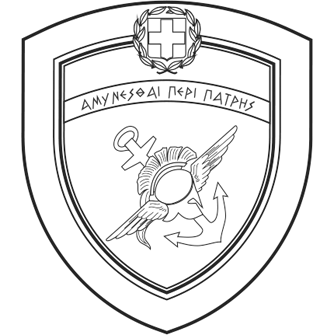From 4 to 8 June 2018 the “Posidonia 2018” shipping exhibition took place in Athens, constituting the most important shipping exhibition in the world. The exhibition was held at Athens Metropolitan Expo with the participation of more than 1.900 companies from 92 countries. New ideas, services and innovative products were presented in the exhibition and HMOD demonstrated its technological achievements at the stand of the Hellenic Navy with the public turnout exceeding 1.000 people.
The visitors of the exhibition had the opportunity to be briefed by HMoND personnel of proper expertise on the European programmes managed by the Directorate for the Management of European and Development Programmes and materialised by the most capable members of the General Staffs. The visitors were briefed, in detail, on the research programmes: CAMELOT, MARISA, NAFTES, RANGER, RAWFIE, ROBORDER and TOXI-TRIAGE.
The CAMELOT European project (C2 AdvancedMulti-domainEnvironmentandLiveObservationTechnologies) has a 3-year duration and is included in the scientific research field of Border Security by Horizon 2020. The project pertains to the development of a multidimensional interoperable Command and Control station which will be customised depending on the needs of the user and it will serve the field of border security (https://camelot.tekever.com/).
The MARISA European project (Maritime Integrated Surveillance Awareness) has a 3-year duration and pertains to the development of an integrated platform for the exchange of information and operational images among the EU member – states, aiming to improve their cooperation in issues of sea surveillance and their response in cases of illegal migration, sea terrorism, piracy and illegal trafficking of weapons and drugs (https://www.marisaproject.eu/).
The NAFTES project (ERASMUS+) has a 2-year duration and pertains to the upgrade of the existing training procedure at the Naval Training Command, regarding the fire / evacuation simulator of the PALASKAS Training Centre, through the use of innovative tools and technologies (www.naftes.eu/).
The RANGER European project (RAdarsforloNGdistancemaritimesurveillanceandSARoperations) has a 3-year duration and pertains to the creation of sea surface RADAR, for the purpose of great distance surveillance (www.ranger-project.eu).
The RAWFIE project (Road-, Air- and Water-based Future Internet Experimentation) is a European 4-year project included in the scientific research field FIRE+ (Future Internet Research and Experimentation) by Horizon 2020. The project pertains to the establishment of a federation of testbeds in IoT for UxVs and the provision of “smart” tools to conduct experiments remotely, through the operation of a great number of unmanned vehicles on land, in sea and in the air, through full internet accessibility and parallel collection and integration of data and information by their sensors (www.rawfie.eu).
The ROBORDER European project has a 3-year duration and pertains to the development of a fully functional autonomous system of sea and land borders surveillance through the use of information / images taken from unmanned assets (UGVs, USVs, UUVs and UAVs), under any weather conditions (www.roborder.eu).
The TOXI-TRIAGE project (Integrated and Adaptive Responses to Toxic Emergencies for Rapid TRIAGE: Engineering the Roadmap for Casualty to Patient to Survivor) constitutes a 4-year European project included in the scientific field SECURE SOCIETIES by Horizon 2020. This project pertains to the development of an integrated decision-making system during the management of mass casualties, due to a CBRN incident (www.toxi-triage.eu).
